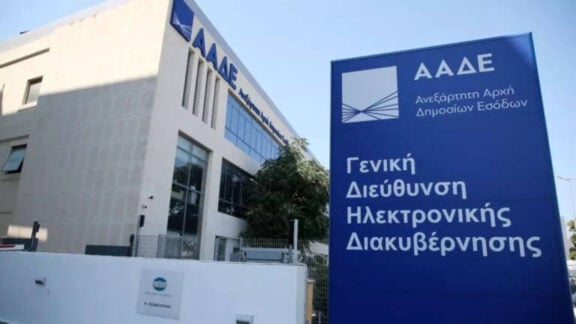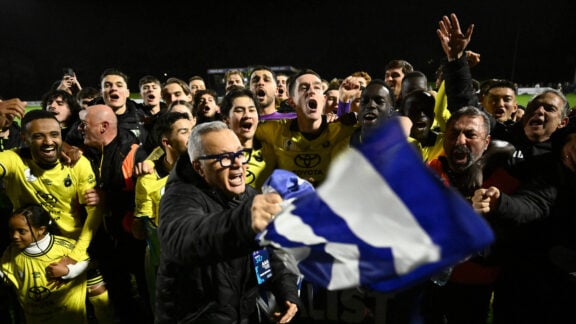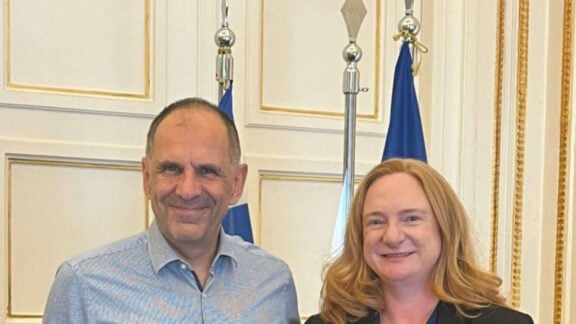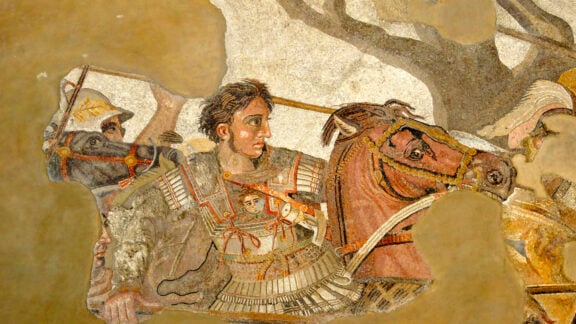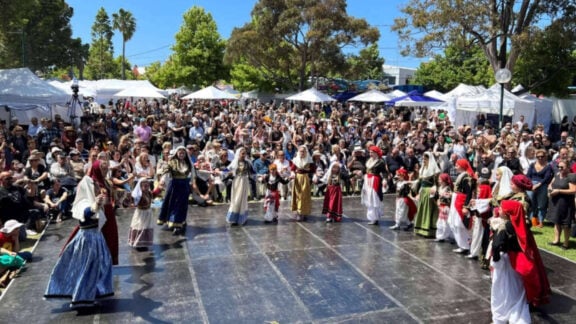The Governor-General of Australia, David Hurley, and his wife Linda, will embark on a state visit to Greece on April 30. After Greece, they will attend the coronation of King Charles in the United Kingdom.
There are many-layers and deeper realities to these performative events for Australia and for Greece. In Greece, Hurley will meet with the President of the Hellenic Republic, Katerina Sakellaropoulou, and Prime Minister Kyriakos Mitsotakis. In Greece, the Governor-General will attend the ground-breaking ceremony for the Lemnos Remembrance Trail on the island of Lemnos, as well as other commemorative events to honour the service of Australians during the Gallipoli campaign in the Great War.
We will be represented by the governor general as part of a monarchical commonwealth, an ex colony of England and a democracy in Greece – the first house of democracy.
It was a brief period of democracy in Ancient Athens. Greece did ultimate become again a democracy and republic. But it took a thousand plus years of rebellions, wars, tyrannies – a string of wars – many wars – 400 years of colonisation, a bunch of dictatorships, more invasions and many fratricides.
Lemnos as a new stage of commemoration
Lemnos was until recent years forgotten as a place of significance for Australia, and for Greece in the Great War. The island of Lemnos was the final departure point for the Anzac Gallipoli landings and was where Australian nurses tended to wounded Anzacs. The need to honour Australian servicemen and women is unquestioned in my mind. Honouring the dead of war is the mark of civilised and humane democracy.
We should honour the dead of the nation, as well as the dead of enemies. Pericles was first to honour Athens’ dead in his Funeral Oration after the Peloponnesian War in 431 BC. In his oration, he made democracy, freedom, and justice the main rationale for citizens going to war. It was the first attempt to make human rights a casus belli.
“… we are called a democracy, for the administration is in the hands of the many and not of the few. But while there exists equal justice to all and alike in their private disputes, the claim of excellence is also recognized; and when a citizen is in any way distinguished, he is preferred to the public service, not as a matter of privilege, but as the reward of merit.” (Thucydides, Pericles’ Funeral Oration)
Pericles wanted to engage a free citizenry, he did not commandeer a servile army, nor mercenaries, as most other powers did at the time.
ANZAC blood sacrifice as public performance
Media theorist James S Ettema would consider the Anzac story ‘culture’ and public performance’. In Anzac memorials, the state, be it Australia, the Republic of Turkey, or Greece, and their media, along with citizens engage in a performance of memory and honour. And the narrative usually goes something like this: in a new Turkish Republic, the fallen enemy the Anzacs become ‘sons of Turkey’. The commemorations take on religious dimensions where blood sacrifice becomes performance.
Alternative or left media may highlight the British Imperial failure, and how an Australian colony tugged the forelock, to invade a foreign nation in a futile European imperial war. Either way, the Anzac story is now a ritual, from left and right, that requires the ‘coordinated engagement of audiences and elites’ and institutions, in ‘formalised sequences of actions’ and become ‘public enactments’ according to Ettema.
Greeks in the performance
Greeks in Australia recently have sought to take part in that performance for reasons far from obvious in 1914-1918. The Great War produces different conventions now – we focus on the ‘fraternal bond’ between Greeks and Anzacs born on the Island of Lemnos, which has transformed into a new sacred space.
In our ‘performance,’ we could prompt non-Greek Australians to think of Gallipoli as Καλλίπολις (Kalipoli)-the beautiful city’ colonised by the Ottomans. As Greeks, we can talk of Anzacs being cut down by German machine guns while, a hundred kilometres inland, Turkish paramilitaries piloted the 20th Century’s first systematic genocide of over 1.3 million Armenians. Up until 1917, the German-affiliated King Constantine of Greece opposed entering the War, while the republican Venizelos government was committed to the Anglo-French alliance.
It was a time of the rise of new republican nationalisms in the Balkans as the Ottoman Empire collapsed. Greece, a new nation, had consolidated its territory from Turks and later Bulgarians in the 1912 and 1913 Balkan Wars. Turkey was trying to finally end the atavistic Ottoman Empire for a new industrial Turkey and built-in Prussian systems. The Republican Mustafa Kemal Atatürk, the founder and first president of the Republic of Turkey, played a pivotal role in the Turkish War of Independence, which resulted in the establishment of the modern-day Turkish state in 1923. He was also born in Thessaloniki and spoke fluent Greek.
The culmination of nationalisms culminated in the 1922 Great Catastrophe when Greece’s adventurism and a call to ‘take back’ Constantinople (Istanbul) ended in humiliating defeat and resulted in what we call the Great Catastrophe, Μεγάλη Καταστροφή (Megáli Katástrofi). The Great Catastrophe resulted in the burning of Smyrna (Izmir) by Turks and the ethnic cleansing of up to 1.2 million Greeks through death marches, massacres, burnings, and mass rape. Nor will we talk of the expulsion of 250,000 Turks from Northern Greece at the barrel of the gun. The British euphemistically called it a ‘population exchange.’ It was only eclipsed by the bloodier Partition of India in 1947.
Australia’s heroic myths
As the Governor-General, Australia’s head of state and representative of the King of England, breaks ground in Lemnos, we should reflect on that period. Australia was well into the ‘White Australia Policy’ as set during the 1901 Federation, and in that policy, Greeks, Southern Italians, Slavic peoples, and Turks were not ‘white.’
The Great War amplified racism, which led to the anti-Greek riots of 1916 in Kalgoorlie. The 1916 riots have received little attention in Australian history, in contrast to the 1934 anti-Greek race riots. Australia was, as the British historian Lawrence James writes in Rise and Fall of the British Empire, “a white men’s socialist paradise.”
It is doubtful that the Governor-General’s visit to the Hellenic Republic will ignite analysis, but it is a complex event worth pondering beyond the Periclean oratory and myth-making performances. As we reflect on the sacrifices of the Anzacs, it’s important to remember that the Great War was a catastrophe that ignited an even greater catastrophe, World War II.
The tragedies that befell the Anzacs who left their bones on Gallipoli, Villers-Bretonneux, and Lemnos, and the indigenous Armenian and Greek populations of Turkey should be considered part of the choreographed blood sacrifice performances of state, institutions, and media.
Fotis Kapetopoulos is a journalist for Neos Kosmos and a PhD Candidate researching ethnic media.

